Taxes Aren't Due Yet, But You Might Want to File Now Anyway
Even though this year's tax deadline has been extended, there are still plenty of good reasons to file your taxes now.

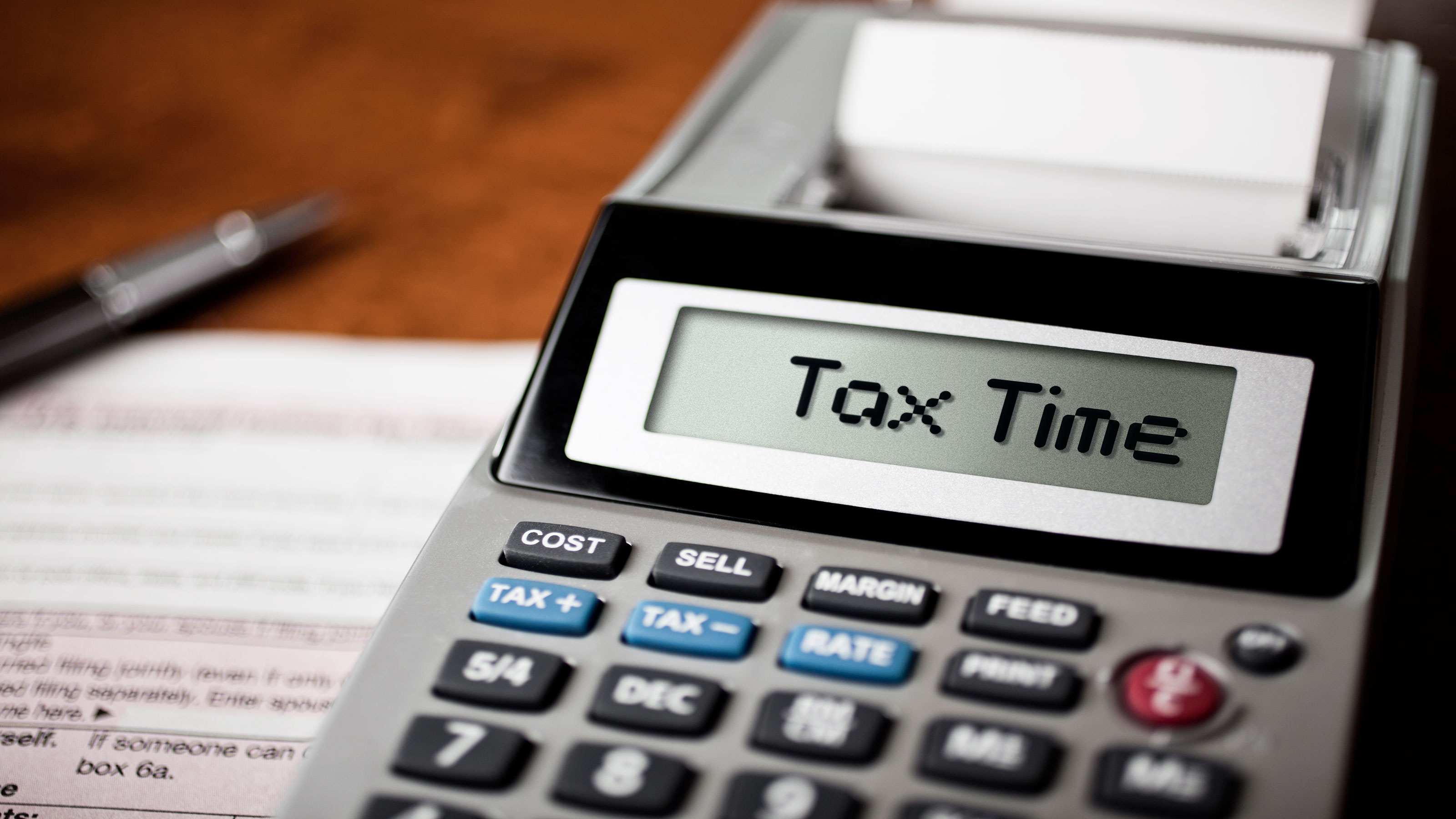
Profit and prosper with the best of Kiplinger's advice on investing, taxes, retirement, personal finance and much more. Delivered daily. Enter your email in the box and click Sign Me Up.
You are now subscribed
Your newsletter sign-up was successful
Want to add more newsletters?

Delivered daily
Kiplinger Today
Profit and prosper with the best of Kiplinger's advice on investing, taxes, retirement, personal finance and much more delivered daily. Smart money moves start here.

Sent five days a week
Kiplinger A Step Ahead
Get practical help to make better financial decisions in your everyday life, from spending to savings on top deals.

Delivered daily
Kiplinger Closing Bell
Get today's biggest financial and investing headlines delivered to your inbox every day the U.S. stock market is open.

Sent twice a week
Kiplinger Adviser Intel
Financial pros across the country share best practices and fresh tactics to preserve and grow your wealth.

Delivered weekly
Kiplinger Tax Tips
Trim your federal and state tax bills with practical tax-planning and tax-cutting strategies.

Sent twice a week
Kiplinger Retirement Tips
Your twice-a-week guide to planning and enjoying a financially secure and richly rewarding retirement

Sent bimonthly.
Kiplinger Adviser Angle
Insights for advisers, wealth managers and other financial professionals.

Sent twice a week
Kiplinger Investing Weekly
Your twice-a-week roundup of promising stocks, funds, companies and industries you should consider, ones you should avoid, and why.

Sent weekly for six weeks
Kiplinger Invest for Retirement
Your step-by-step six-part series on how to invest for retirement, from devising a successful strategy to exactly which investments to choose.
April 15 has come and gone. That means the tax filing deadline has already passed, right? Wrong! Because of the pandemic, the IRS is giving everyone an extra month to file their federal income tax return. So, instead of the normal April 15 deadline, Tax Day has been pushed back to May 17 this year.
But why wait? Even though you can put it off for a bit longer, filing your tax return now could save you money, time, and stress. At the very least, it will give you one less thing to worry about in your already hectic world. But if that's not enough to get you moving, here are a few more reasons why you might want to bite the bullet and do your taxes now. Once you're done, you can laugh at all the procrastinators and enjoy the next couple of weeks without having to worry about taxes.
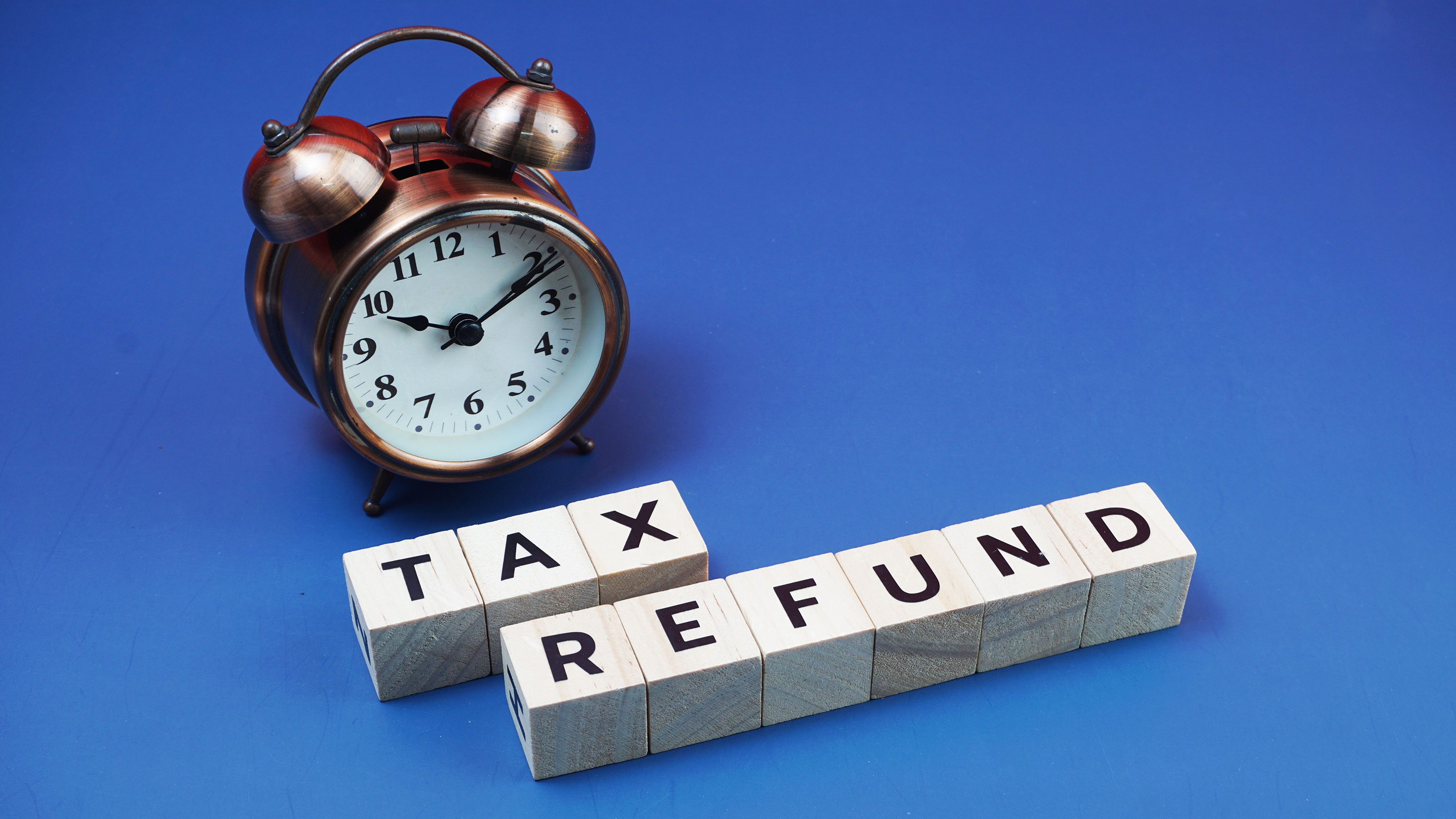
Faster Refund
The sooner you file, the sooner you'll get your tax refund…assuming you're entitled to one. Historically, the IRS has been able to issue over 90% of tax refunds in less than 21 days. And there's even something you can do to speed up the refund process: E-file your tax return and have your refund directly deposited into your bank account. That's the fastest way to get your money, since paper returns and checks can really slow things down.
There are a few other things that can slow down your refund, too. For example, expect processing delays if your return:
- Includes errors;
- Is incomplete;
- Is affected by identity theft or fraud;
- Includes Form 8379, Injured Spouse Allocation (which could take up to 14 weeks to process); or
- Needs further review in general.
The IRS will contact you by mail if it needs more information to process your return.
As of April 23, 2021 (most recent data available), the IRS has issued over 77 million tax refunds for the 2020 tax year. More than 71 million of those refunds (over 92%) were paid by direct deposit. That gives you an idea of how popular direct deposit is these days. The average refund is for $2,870, which is 2.9% higher than the average at this point last year.
For information on how to track the status of your refund, see Where's My Refund? How to Track Your Tax Refund Status.
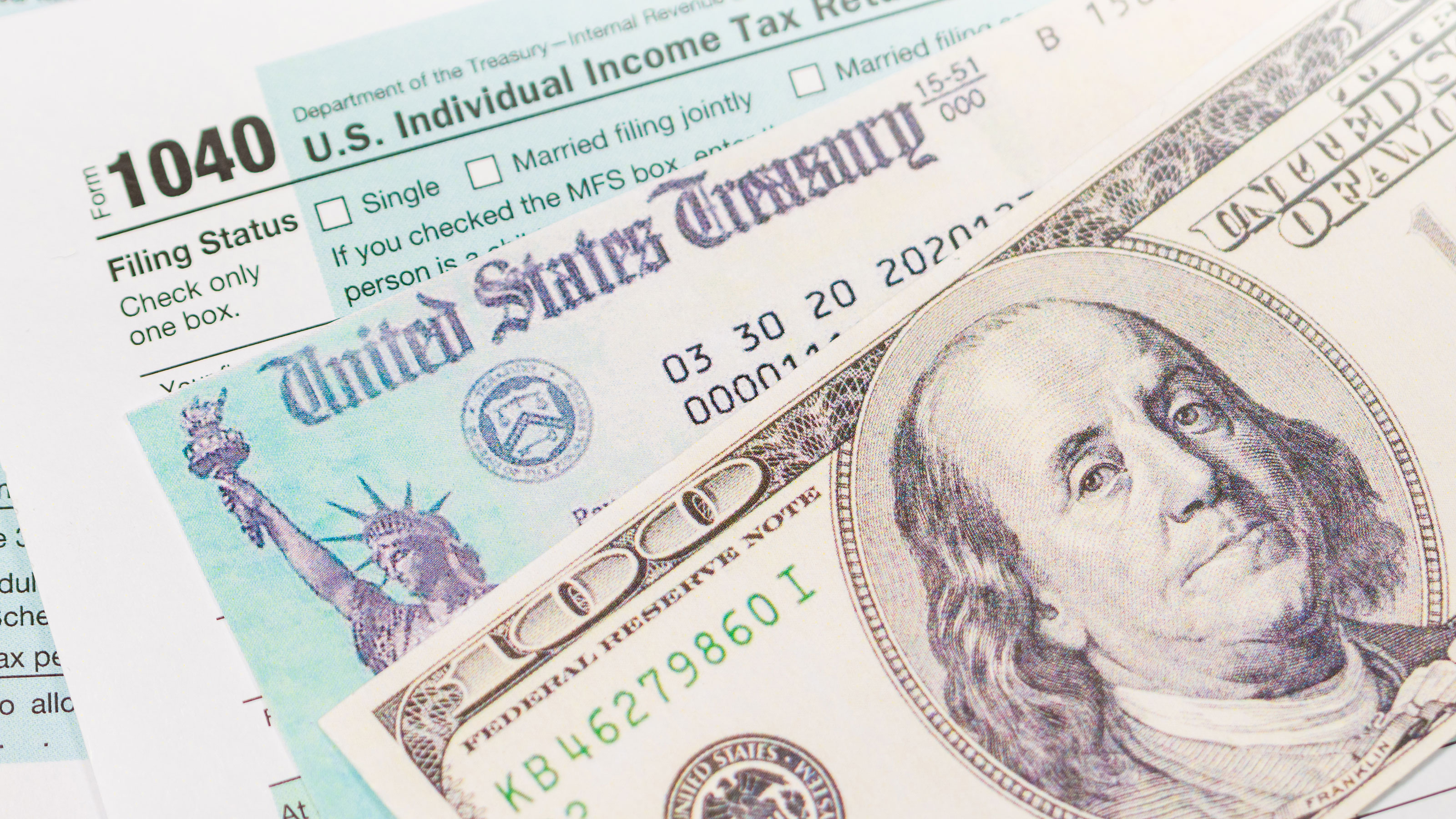
Recovery Rebate Credit (Stimulus Money!)
If you didn't receive a first- or second-round stimulus check, or if you didn't receive the full amount, you may be able to get what you're owed now by claiming the Recovery Rebate credit on your 2020 tax return. Both the first ($1,200) and second ($600) stimulus payments were actually just advance payments of the credit. So, if the combined total of those first two stimulus checks is less than the amount of your Recovery Rebate credit, you get the difference back on your 2020 tax return. That will either lower your overall tax bill or trigger a refund. Again, if you're getting a refund, you'll get your money faster if you file your return sooner.
The Recovery Rebate credit is generally calculated in the same way that first- and second-round stimulus checks were computed. The one big difference is that those stimulus checks were usually based on information found on your 2019 tax return (or your 2018 return for first-round checks), while the credit is based on information from your 2020 return. So, it's possible to qualify for a stimulus check but not for the credit – and vice versa – if your income or family situation changed significantly from 2019 to 2020.
There's a page-long worksheet in the instructions for Form 1040 that you can use to calculate the amount of your Recovery Rebate credit. You'll need to the amount of your first- and second-round payments (if any) since they'll be subtracted from your credit amount. To see how much you should have received as stimulus payments, use our handy calculators for the First Stimulus Check and Second Stimulus Check. For more information on the credit, see What's the Recovery Rebate Credit?
[Note: If you don't get a third stimulus check, or don't get the full amount, you can claim the Recovery Rebate credit on your 2021 tax return, which you'll file next year. You can use our Third Stimulus Check Calculator to see how much you should get.]

"Plus-Up" Payments (More Stimulus Money!!)
Some people who already received a third stimulus check will get a supplemental payment as well. The IRS is calling them "plus-up" payments, and the tax agency has already sent over 3 million of them to Americans who recently filed a 2020 tax return.
Here's how it works: Your third stimulus check is generally based on either your 2019 or 2020 tax return. If your 2020 tax return isn't filed and processed by the time the IRS is ready to send your payment, then your payment will be base your 2019 return (or whatever other information is available). If your 2020 return is already filed and processed, then your third stimulus check will be based on that return. If, however, your 2020 return is not filed and/or processed until after the IRS sends your stimulus payment, but before August 16, 2021, the IRS will send you a "plus-up" payment for the difference between what your payment should have been if based on your 2020 return and the payment actually sent that was based on your 2019 return or other data.
So, if you think you're entitled to a supplemental payment, there's only one way to get it – by filing your 2020 tax return. And, as we've said before, the sooner you file your return, the sooner you'll get paid.
What happens if you don't file a 2020 return? You can still get the money, but you'll have to wait until next year to get it. When you file your 2021 tax return, claim the Recovery Rebate credit to get what you're still owed.
For more on "plus-up" payments, see What are "Plus-Up" Payments (And Will You Get One)?

Reduced Fraud
Filing your tax return sooner rather than later can also cut down on tax return fraud. If someone steals your personal information and files a fraudulent tax return in your name to get a refund, the IRS isn't necessarily going to know it's a bogus return right away. Instead, when a second return is filed – this time a legitimate return filed by you – that's when the IRS is going to know something's up. At that point, you might not be able to e-file your return or the IRS may send you a letter asking about a tax return that you didn't file. But, by then, it might be too late – the fraudster may already have a refund payment in hand.
To get ahead of the criminals, file your tax return early. That way, you're ahead of the thief, who is the one filing the second return that sets off alarm bells at the IRS. That will save you a lot of time and stress dealing with the tax agency and trying to get the refund money that you're legally entitled to receive. Better yet, adjust your withholding at work or make estimated tax payments during the year so that you're not getting a refund at tax time – you then won't have to haggle with the IRS to get your money if your identity is stolen. And you won't be giving the government an interest-free loan, either.
What to do if you know or suspect you're the victim of tax-related identity theft? If you get a notice from the IRS about a possible fraudulent return, respond immediately (call the number provided). Note that the IRS won't call, text or email you about the return – it will send you a letter in the mail. If your e-filed return is rejected because of a duplicate filing under your Social Security number, complete IRS Form 14039, Identity Theft Affidavit.
You can also be proactive and get a Identity Protection PIN (IP PIN). The IP PIN is a six-digit personal identification number that offers additional protection when you're filing your tax return. You can request an IP PIN using the IRS's "Get An Identity Protection PIN" tool.
The IRS's Taxpayer Guide to Identity Theft is a good source for additional information about tax-related identity theft.

Monthly Child Tax Credit Payments
Filing your 2020 tax return now could also help the IRS set up monthly advance payments of the 2021 child tax credit to you. According to the IRS, these payments are expected to begin in July. Half of your total credit amount will be paid monthly from July to December 2021. The other half will be claimed on your 2021 tax return, which you'll file next year.
As with the third-round stimulus checks, the IRS will look at either your 2019 or 2020 tax return to see if you're eligible for monthly child credit payments and, if so, to calculate the amount you'll get. The tax agency will first look to your 2020 return. But if it hasn't been filed yet, the IRS will turn to your 2019 return for the information it needs.
What if you had a baby in 2020? Your new bundle of joy won't be reflected on your 2019 return, which means your monthly payments won't be as large. If you file your 2020 return now, the IRS will see your new baby listed as a dependent and up the amount of your advance child credit payment. (Use Kiplinger's 2021 Child Tax Credit Calculator to see how much money you could get each month under the new child tax credit rules for 2021.)
By law, the IRS must create an online portal that parents can use to update their income, marital status, and the number of children. So, there will be an opportunity later to report a new baby or other relevant changes that can affect your monthly payments. But it will be much easier to have all that information in the IRS's hands before July. The portal's rollout could be bumpy, too. Even the IRS expects tweaks to be necessary after people start entering data into the online tool.
To get up-to-speed on this year's child tax credit, check out Child Tax Credit 2021: Who Gets $3,600? Will I Get Monthly Payments? And Other FAQs.

State Tax Returns
Although your federal income tax return isn't due until May 17, your state tax return might be due before then. Since you typically need information from your federal return to complete your state return, you might have to fill out your federal return early anyway just so you can file your state return.
Three states – Hawaii, New Hampshire and Oklahoma – have not extended their income tax return filing date. As a result, their filing deadlines are before May 17 (although Oklahoma tax payments aren't due until June 15). To calculate the state taxes you owe in these three states, you need to pull information from your federal return. So, you pretty much have to run through the federal 1040 form first. If you're doing that, you may as well submit your federal return to the IRS at that time, too.
[Note: New Hampshire only taxes interest and dividends. Wages and other types of income aren't taxed. Nevertheless, you still need to pull interest and dividend information from your federal return.]

More Time to Save
Let's say you fill out your Form 1040 today and realize that you owe the IRS some money. With the extra time you have until you need to actually file the return, you may be able to change that tax bill into a tax refund – and save some money for the future at the same time. That's a win-win!
If you haven't already maxed out your contributions to a traditional IRA for 2020, you have until May 17 to put more money into the account. (For 2020, you can contribute up to $6,000 to a traditional IRS – up to $7,000 if you're age 50 or older.) Plus, depending on your income, you may be able to deduct the contribution on your 2020 return (or take a larger deduction). If that's the case, your tax bill will come down and you might even find yourself in refund territory. Then, on top of the IRS deduction, you might also qualify for the Saver's Credit for your 2020 IRA contributions. You can trim up to $1,000 off your tax bill with that credit. (For more information on these tax breaks, see Fund Your IRA, Cut Your Taxes.)
Similar rules apply to health savings account (HSA) contributions. If you have an HSA, you have until May 17 to contribute to the account and have it count towards your 2020 contribution limit. And, as with contributions to a traditional IRA, you may be able to deduct contributions to your HSA on your 2020 tax return. Again, that will lower your tax bill and possibly trigger a refund.

More Time to Pay
While most taxpayers end up getting a tax refund, some people owe money to the IRS at tax time. But, even if you file your tax return today, you still have until May 17 to pay any amount you owe. So, by filing now, you'll have more time to save money or figure out how to pay any tax due. Wait until the last minute to file and you might be scrambling to pull together enough cash to pay the IRS.
What if you can't pay what you owe by May 17? If that's the case, you have a few options. You can, for example, apply for a payment plan to pay the tax you owe over time. A fee will be required to set this up. Another option is to submit an offer in compromise (OIC), which allows you settle your tax debt for less than the full amount you owe. The IRS will generally approve an OIC if the amount you offer to pay is more than what the tax agency thinks it can collect from you within a reasonable period of time. You can also request an extension of time to pay your taxes if paying on time would cause an undue hardship. Use Form 1127 to ask for an extension, which generally be for more than six months. Finally, you can request a temporary delay of the collection process by calling the IRS at 1-800-829-1040.

More Time to Find a Tax Preparer
Don't wait until the last minute to look for a CPA, enrolled agent, or other tax professional to prepare your tax return. If you procrastinate, you might not be able to find someone who can squeeze you in.
Tax pros are having a hard time during the pandemic meeting with clients, managing remote employees, studying new tax laws, and generally getting things done on time (like many other businesses). They appreciate having an extra month to get their work done, but many tax preparers still don't think there's enough time to properly serve their clients given the unique circumstances they face. That's why several organizations representing tax professionals are asking the IRS to extend the filing deadline further to June 15 or later.
That's probably not going to happen, so the smart move is to line up a tax preparer now and get your taxes done sooner rather than later. The longer you wait, the harder it will be to find a qualified preparer who can file your tax return on time.
Profit and prosper with the best of Kiplinger's advice on investing, taxes, retirement, personal finance and much more. Delivered daily. Enter your email in the box and click Sign Me Up.
Rocky Mengle was a Senior Tax Editor for Kiplinger from October 2018 to January 2023 with more than 20 years of experience covering federal and state tax developments. Before coming to Kiplinger, Rocky worked for Wolters Kluwer Tax & Accounting, and Kleinrock Publishing, where he provided breaking news and guidance for CPAs, tax attorneys, and other tax professionals. He has also been quoted as an expert by USA Today, Forbes, U.S. News & World Report, Reuters, Accounting Today, and other media outlets. Rocky holds a law degree from the University of Connecticut and a B.A. in History from Salisbury University.
-
 How Much It Costs to Host a Super Bowl Party in 2026
How Much It Costs to Host a Super Bowl Party in 2026Hosting a Super Bowl party in 2026 could cost you. Here's a breakdown of food, drink and entertainment costs — plus ways to save.
-
 3 Reasons to Use a 5-Year CD As You Approach Retirement
3 Reasons to Use a 5-Year CD As You Approach RetirementA five-year CD can help you reach other milestones as you approach retirement.
-
 Your Adult Kids Are Doing Fine. Is It Time To Spend Some of Their Inheritance?
Your Adult Kids Are Doing Fine. Is It Time To Spend Some of Their Inheritance?If your kids are successful, do they need an inheritance? Ask yourself these four questions before passing down another dollar.
-
 States That Tax Social Security Benefits in 2026
States That Tax Social Security Benefits in 2026Retirement Tax Not all retirees who live in states that tax Social Security benefits have to pay state income taxes. Will your benefits be taxed?
-
 Ten States with the Lowest Sales Tax in 2025
Ten States with the Lowest Sales Tax in 2025Sales Tax Living in one of the lowest sales tax states doesn't always mean you'll pay less.
-
 10 Least Tax-Friendly States for Middle-Class Families
10 Least Tax-Friendly States for Middle-Class FamiliesState Tax Here’s what living in one of the least tax-friendly states for middle-class families costs residents.
-
 Low-Tax States for 'Middle-Class' Families in 2026
Low-Tax States for 'Middle-Class' Families in 2026State Tax Here are the best states for families with middle incomes (due to low tax burdens).
-
 15 States That Tax Military Retirement Pay (and Other States That Don't)
15 States That Tax Military Retirement Pay (and Other States That Don't)retirement Taxes on military retirement pay vary from state-to-state. How generous is your state when it comes to helping retired veterans at tax time?
-
 5 Tax Deadlines for October 17
5 Tax Deadlines for October 17tax deadline Many taxpayers know that October 17 is the due date for filing an extended tax return, but there are other tax deadlines on this date.
-
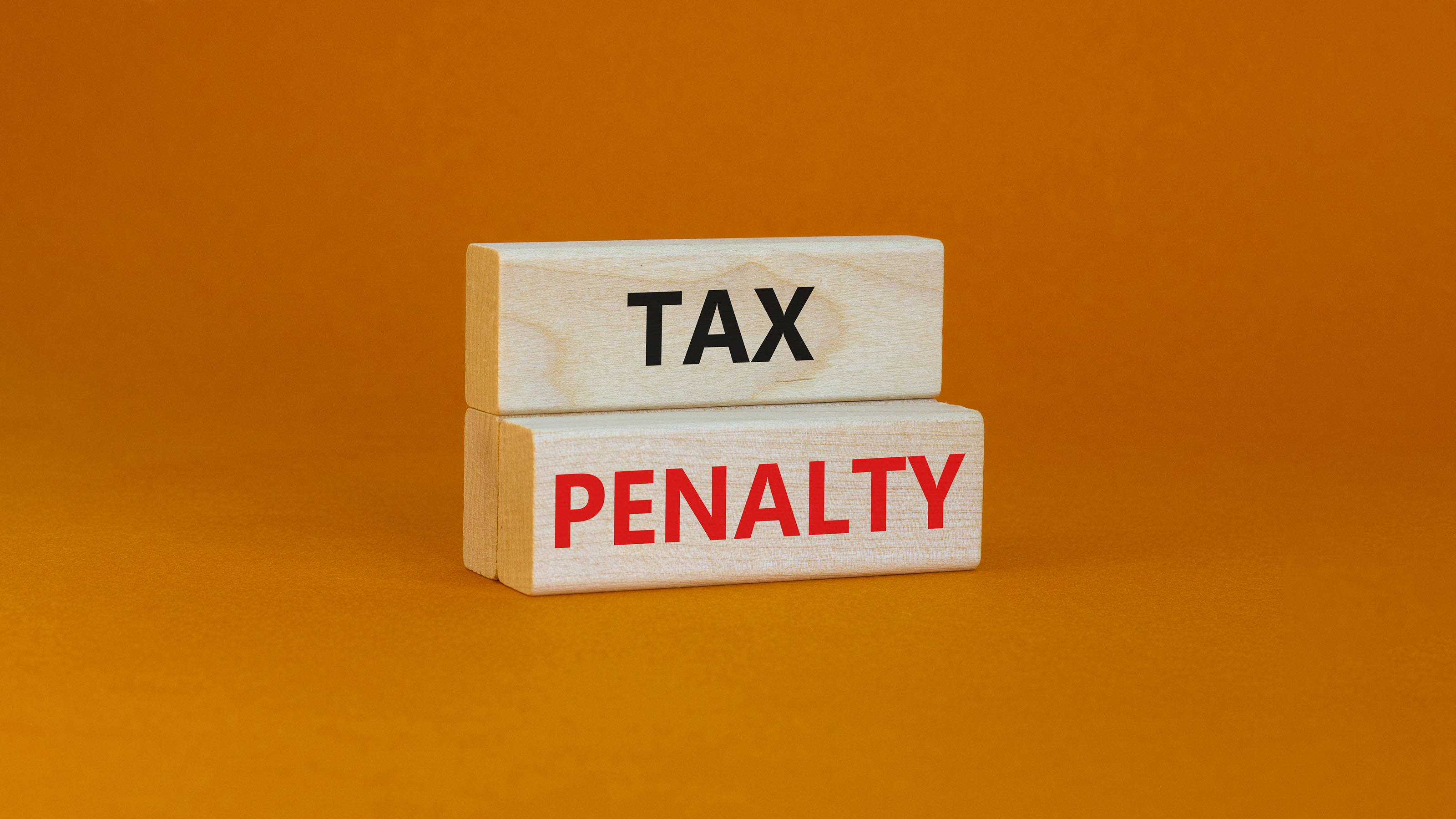 Penalties for Filing Your Tax Return Late
Penalties for Filing Your Tax Return Latetax deadline Stiff penalties await those who didn't file their return (or pay any tax owed) by the tax filing deadline.
-
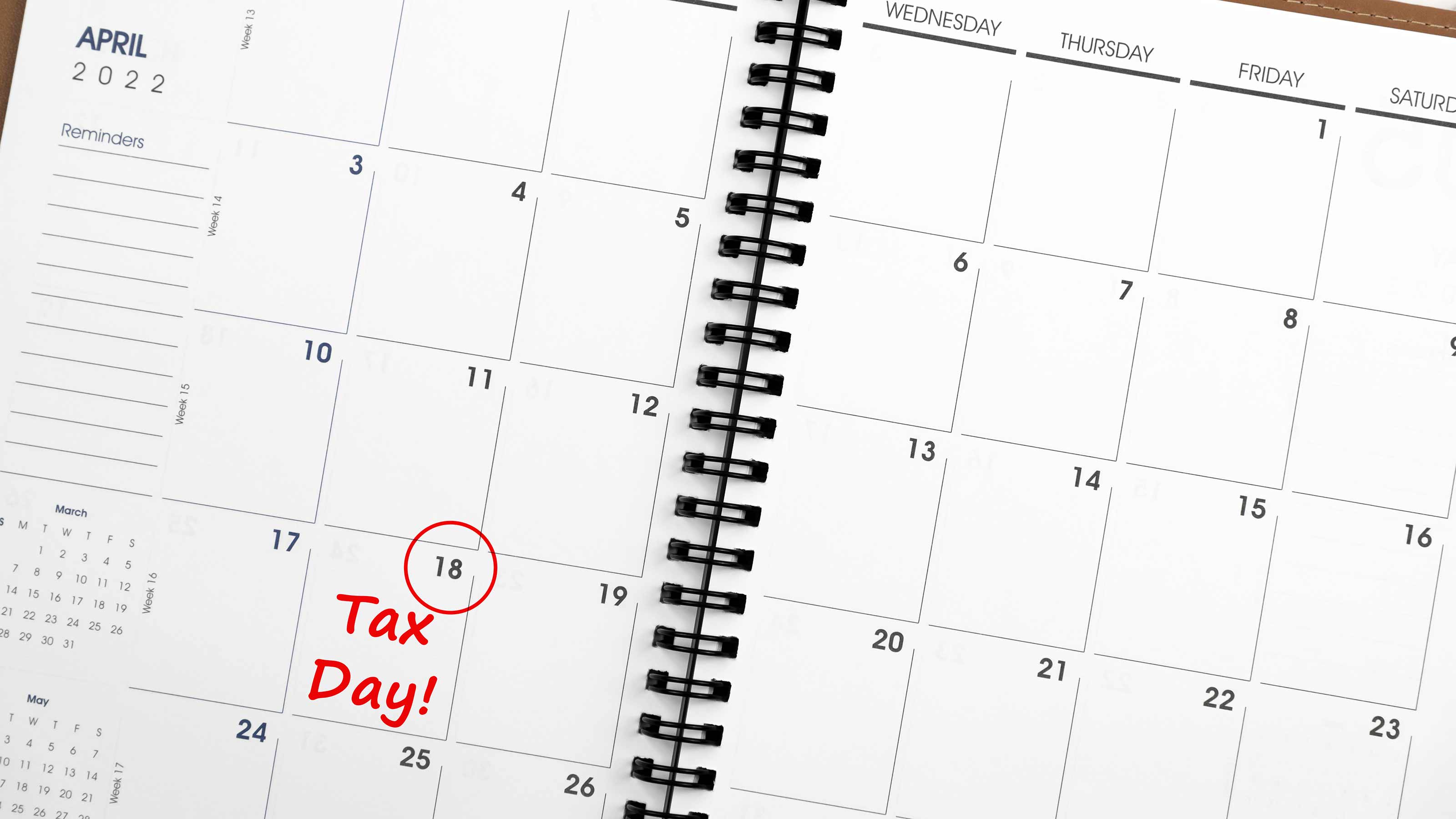 9 Tax Deadlines for April 18
9 Tax Deadlines for April 18tax deadline Between requesting a tax extension, making IRA or HSA contributions, and meeting other tax deadlines, there's more to do on Tax Day than just filing your federal income tax return.

